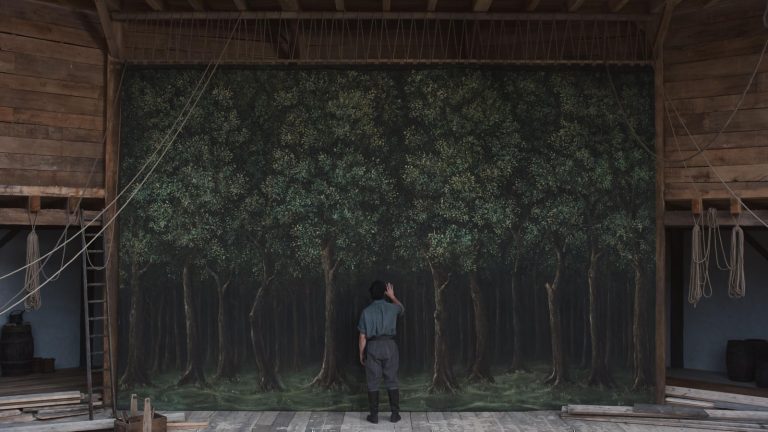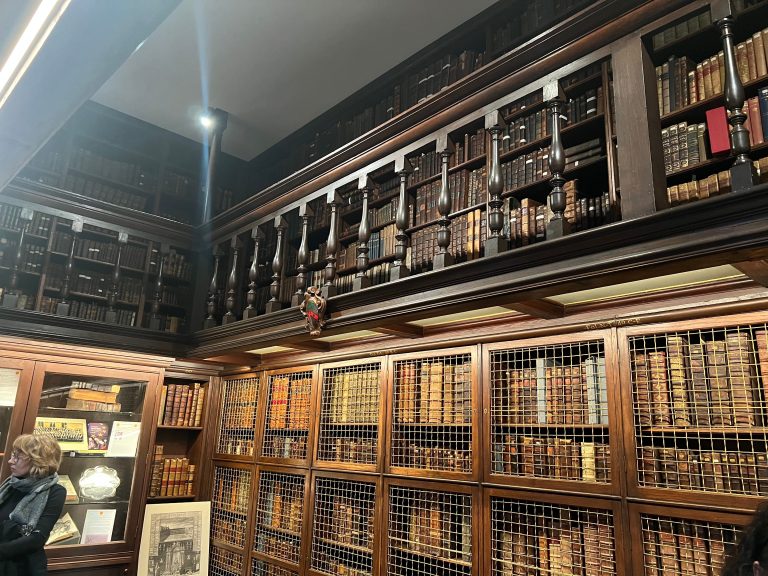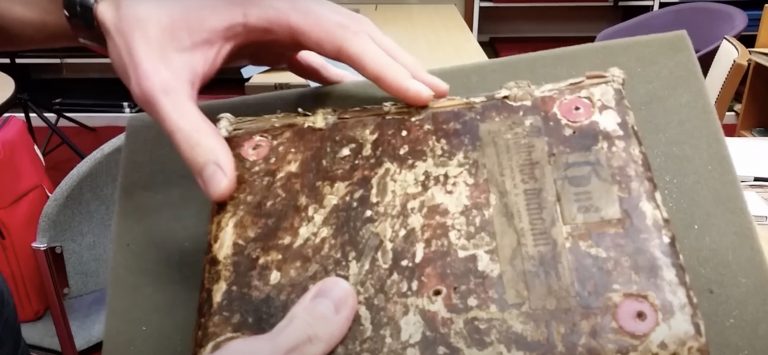Welcome to the Taylor Institution Library! The Taylor Institution is the University of Oxford’s library for Modern Foreign Languages. It was funded by Sir Robert Taylor in a codicil to his will in 1788. Due to his will being contested, the University didn’t have access to the funds until 1834, when it was also considering …
Hamnet’s Intertextuality, or the Art of Book Adaptation
Written by Jana Christin Lammerding Few conventions in filmmaking spark as much debate as adapting books for the big (or small) screen. With their potential to breathe new life into a story and their risk to dilute the original work, book-to-film adaptations are indeed a potentially rewarding but delicate undertaking in the creative business. Yet …
Why Study German in England? Impressions of my Internship in Oxford
A report by Marina Giraudeau (Université de Lausanne), Research Intern Michaelmas 2025 When I first met Henrike Lähnemann in spring 2024, I would never have believed the possibility of an internship at Oxford University would actually come true. Yet here I am, spending Michaelmas 2025 in a city vibrant with cultural events, academic opportunities and …
Books, archives, and collections: the many facets of library management
by Marina Giraudeau (Intern in Medieval German under the supervision of Henrike Lähnemann) This week, a change of scenery: the History of the Book seminar is meeting at St Edmund Hall! After making our way into the college’s Front Quad, we are warmly welcomed by librarian James Howarth, who will be our enthusiastic guide through …
Information session: Graduate Exchange Places for German at the University of Oxford
Are you interested in the study of Modern Languages on an advanced degree level? Would you like to be part of a large research community spanning seven languages, with research interests ranging from Medieval Studies all the way to Contemporary Literature Studies? Would you like to spend 9 months at one of the oldest universities …
Cohort of 2025/26 Add to the History of the Book Timeline
Written by Delilah Pearson, MSt. in Modern Languages 2025 Week one of Michaelmas saw this year’s History of the Book cohort gather for the first time – M.St. Modern Languages students with a range of specialisms, brought together by their curiosity about, among other things, palaeography, conservation techniques, and discussions surrounding books as cultural objects. As we trickled …
Opening the Archives. Digital Engagement with the Peasants’ War
The edition ‘Wider die Rotten der Bauern’ / ‘Against the Bands of Peasants’ launched on Friday, 28 November 2025, in the Taylor Institution Library. The edition comprises a historical and bibliographic introduction as well as the edition, translation, and facsimile. Watch the launch with a full reading of the pamphlet below. Ebook of the volume …
The Girl Who Lived in the Library
On Wednesday 15 October, 5-6.30pm, there was the launch of a new book in the Taylorian, Room 2, where the building itself and its inhabitants are the protagonists: Luisa Hewitt: The Girl Who Lived in the Library, edited by Christina Ostermann on the occasion of the 2025 conference of the Association for German Studies (AGS). Both the …
German in the World
To celebrate the 2025 conference of the Association for German Studies (AGS), the Taylorian is showing a special exhibition linked to the theme of the conference ‘German in the World’, opening on 2 September 2025 and running until end of October 2025. The catalogue is open access available via the Publications website of the Taylor …
Launch of Hedwig Dohm: ‘Werde, die du bist’ in a new feminist, collective translation
00:50 Marie Martine: Opening 04:45 Emily Dicker on creating the visual imagery 07:09 Victoria Mckinley-Smith on the translation process 09:03 Emily Dicker, Victoria Mckinley-Smith, Lia Neill, and Isabella Reese: Reading The launch presented a new bilingual edition of ‘Werde, die du bist !’, a novella by the German feminist essayist and writer, Hedwig Dohm (1831-1919), …
A Manuscript from the Charterhouse Erfurt in the Taylorian
First started October 2019 by Maximilian Krümpelmann, updated June 2025 by Christina Ostermann Maximilian Krümpelmann explains the features of an unusual manuscript in the Taylor Institution Library, MS. 8° Germ. 1. Part of the History of the Book seminar series for Master students at the Faculty of Medieval and Modern Languages at the University of …





